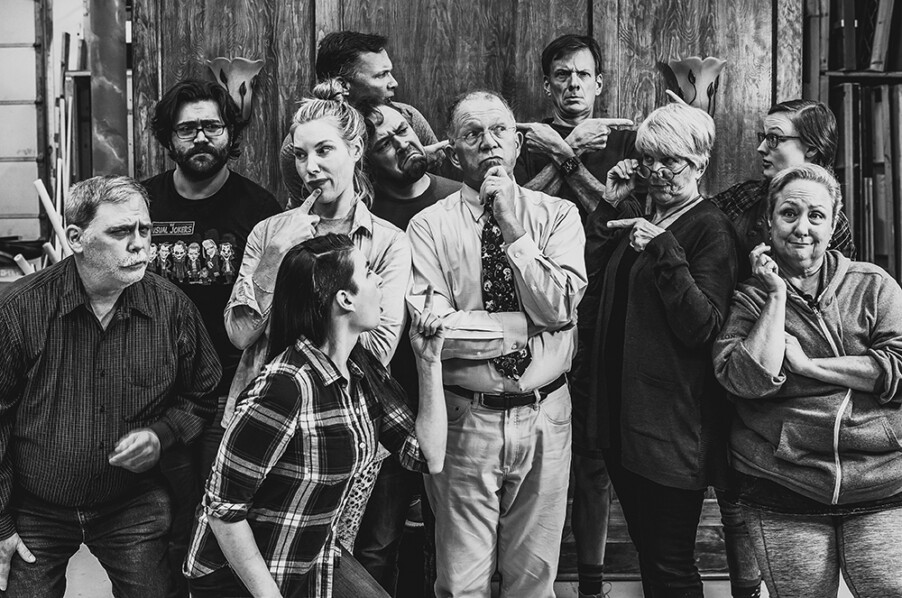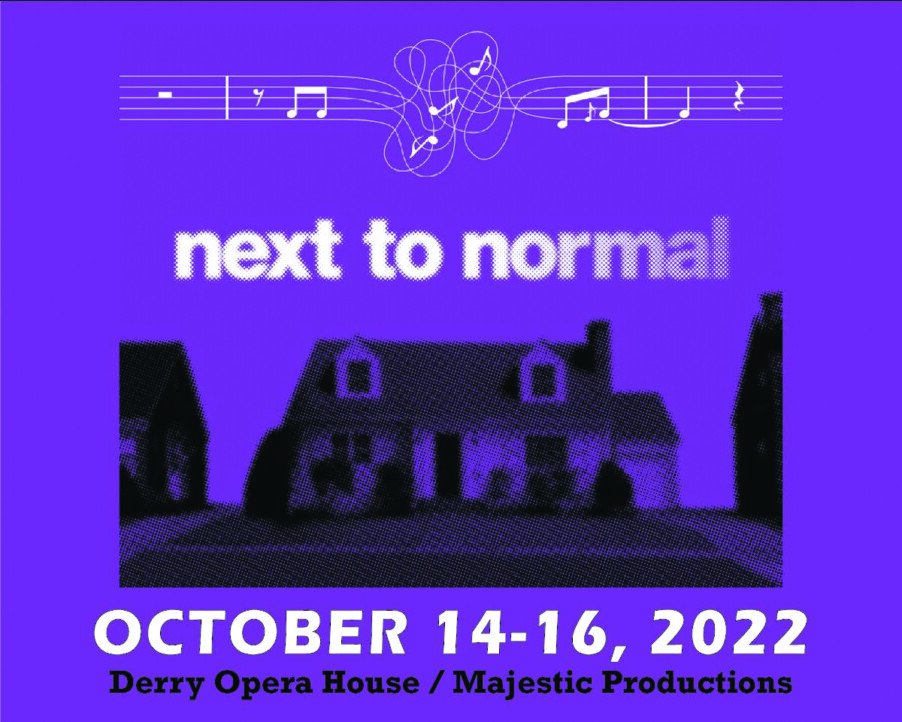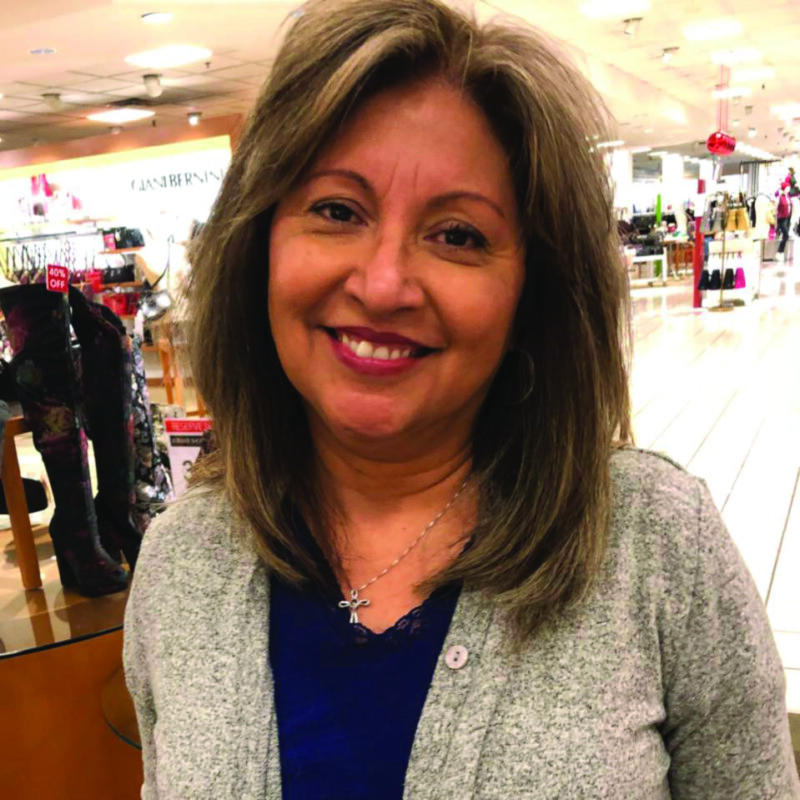Finding Hercule Poirot, becoming Mr. Toad and other tales of actors getting into their fall show roles
New Hampshire is in the thick of fall theater season, with professional and community productions filling the schedule with musicals, dramas, comedies and productions with young performers. We talked to several local actors from some upcoming shows who will be hitting the stage over the next month about how they are getting into character and what makes their shows a must-see.
Connor Weeks, as Mr. Toad
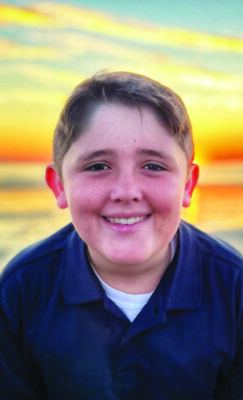
The Community Players of Concord presents The Wind in The Willows, a children’s theater project featuring 24 young actors,at the Audi Concord (2 Prince St.). Showtimes are Friday, Oct. 14, at 7 p.m., and Saturday, Oct. 15, at 2 p.m. Tickets are $15. Visit communityplayersofconcord.org.
What is The Wind in the Willows about?
The Wind in the Willows is about a group of animals, specifically a toad, a badger, a mole and a rat, [who] go on a bunch of wild adventures together.
Describe the character you’re playing.
I’m playing the role of Mr. Toad. He’s a very posh and very energetic toad who will spring for the new thing when it comes out. He’s a little self-centered but he doesn’t show it. He tries to pride himself on being Mr. Toadwithout sounding too cocky.
What attracted you to this show?
I [wanted] to be in this because I’ve done a ton of shows with the people who are working on [it] and they’re really nice. Also, my uncle had read the book and he said it was a really good show, so that’s why I’m doing the show.
What is the most challenging thing about playing this character?
One of the challenging parts about being Mr. Toad is [that] I have to do an onstage costume change in a very short amount of time, and I haven’t really gotten the chance to practice that yet a lot, and that’s really kind of difficult.
What do you like most about playing this character?
What I like most about playing Mr. Toad is his enthusiasm, being around my friends and just being myself and singing.
What are you most looking forward to about being in this show?
I’m most looking forward to being around all my family and friends, and being on stage and showing Mr. Toad off.
Why do you think this is a show that audiences will enjoy now?
They should come to the show and they might enjoy it because it’s really fun. It has a lot of songs that are really fun to dance to, and all of us worked so hard, and I believe the final outcome is going to be so much better than anyone had imagined.
— Mya Blanchard
Izzy Bedy, as Edgar

The Peacock Players (14 Court St., Nashua) presents Disney’s The Aristocats Kids, performed by kids and teens in grades 2 through 12, from Friday, Oct. 14, through Sunday, Oct. 16, and from Friday, Oct. 21, through Sunday, Oct. 23. Showtimes are at 7 p.m. on Friday, 2 p.m. and 7 p.m. on Saturday, and 2 p.m. on Sunday. Tickets range from $12 to $18. Visit peacockplayers.org.
What is The Aristocats Kids about?
It’s based on a Disney movie about a family of cats. They live with Madame, their owner, and Edgar the Butler, who is me, and Edgar is the bad guy. He wants to get rid of them so he takes them away and they have to try and find their way back to Paris.
Describe the character you’re playing.
[Edgar is] a Disney villain, so lots of the songs are … big songs about being evil, and he hates the aristocats. His goal in life is to get rid of them. Madame is his boss and he always tries to impress her. It’s a very fun role because you can be over the top and everything.
What attracted you to this show?
Well, I love theater. I’ve been doing it for five years. I was looking at the new shows, and I was in the age range for this one. I thought, ‘Oh, that might be fun. I think I have an audition song, so I might as well try out.’
What have you been doing to prepare?
Well, I’ve watched The Aristocats a couple times, like, clips from it, especially with Edgar in them … and I’ve read the script over more times than I can count. … If you think about the goal, your character’s goal in life, or like, what your character is thinking or probably doing in the moment, then it can really help you … decide how you’re going to say your lines and how you’re going to show the audience what you mean with those lines and those lyrics. Facial expressions are also everything. So if you practice how you’re going to look at the audience or who you’re going to look at when you’re saying a certain line, it really helps show the character and the personality of the character.
What is the most challenging thing about playing this character?
The most challenging part is probably because it’s a character that’s very different from me, or from most people you will meet in real life. Disney villains are these evil people and they’re very, very over the top and exaggerated in their emotions. It’s hard to find exactly who that person would be in real life.
What are you most looking forward to about being in this show?
I really look forward to our finale and our prologue or opening scene. We have almost the entire cast in both of those numbers and we’ve worked on them for a long time. It was [one of] the first things we started working on, and I think they look really good and everyone is doing a great job of showing their character and their … vocal and acting skills.
Why do you think this is a show that audiences will enjoy now?
Musicals are known for having these big over-the-top numbers and having these characters with very big personalities. There’s so much going on in a musical, and it’s a musical based on a Disney movie, so it’s [so] lively and energetic that it’s really hard to forget it.
— Katelyn Sahagian
Nancy Rosen, as Ida Straus
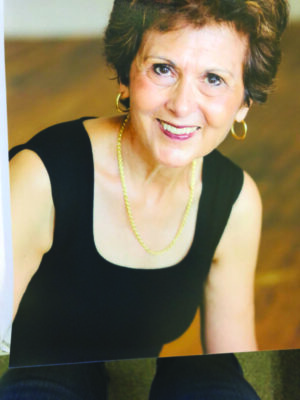
The Manchester Community Theatre Players presents Titanic — performed by actors playing both historical figures and characters that were invented by the show’s writers — at the North End Montessori School (698 Beech St., Manchester) on Friday, Oct. 14, and Saturday, Oct. 15; and from Friday, Oct. 21, through Sunday, Oct. 23. Showtimes are at 7:30 p.m. on Friday and Saturday, and at 2 p.m. on Sunday. Tickets are $20. Visit manchestercommunitytheatre.com.
What is Titanic about?
It’s a musical that was written around the time of the movie. … The subject matter is the Titanic, but it differs in that there’s no Rose and there’s no Jack. The musical is all about the music. … It’s a real musician’s musical. It’s all kind of classical sounding.
Describe the character you’re playing.
Her name is Ida Straus and she was born in the mid-19th century in Germany. She came over to America and married her husband, Isadore. He was a successful businessman. They were very much in love throughout their 40-plus years of marriage. They were traveling back from spending some time in the south of France. They were supposed to take separate ships coming home, but because of a coal strike, they ended up coming home together. They never made it home, because the Titanic hit an iceberg and sank. Isadore, even though he was an older gentleman, said, ‘No, there are younger people that need to go [on the lifeboats], not me,’ and Ida just says, ‘I’m not going, either.’ Their relationship kind of became a symbol to many at the time of true love and total dedication.
What attracted you to this show?
I was asked if I would be interested and I said absolutely. I thought that this is a nice challenge … of a role.
What have you been doing to prepare?
I look at the lines and then I try to think, ‘How do I parallel this woman?’ My parallels are [that] I’m not married 40 years, I’m married 32, and I try to envision how I feel about my husband. … So it’s just total dedication. I just try to make it real. You have to find elements of ‘How do you connect to the person?.’
What is the most challenging thing about playing this character?
Because it’s not a huge role and there might be a line coming in and out, [it’s] the one-liners when you’re walking across [and] just getting the timing of lights and the chronology of certain things.
What are you most looking forward to about being in this show?
Just running it from top to bottom, [and] just getting the flow going with the music. We’ve been in a rehearsal process where we can start and stop a lot. But when the show starts, when we start doing actual performances, it’ll be nice just having a flow going, anticipating what happens next. Just being able to live in the show will be nice.
Why do you think this is a show that audiences will enjoy now?
I think they’ll be swept up by the music and the story. Most people know the story and they know, of course, the inevitability. And the music is the emotion of this grandiose ship. People will be swept up in the whole preparation of the launching of the thing and how it was once in a lifetime. They’ll be swept up in the story of it.
— Katelyn Sahagian
Sam Rogers, as John Proctor

The Seacoast Repertory Theatre (125 Bow St., Portsmouth) presents The Crucible, which runs various dates from Oct. 13 through Nov. 5. Tickets start at $27. Visit seacoastrep.org.
What is The Crucible about?
It takes place in the Puritanical time. The girls are found in the woods at the beginning of the play and they’re doing some kind of dance so that they can talk to the dead. Mr. Paris, who is the minister of the church, catches them in the woods and then they start getting sick. So the girls are sick and everybody in the town is freaking out because they think it’s witchcraft. But the girls know the truth. They know that they were out in the woods and they were dancing naked around in the woods. So they say that it was because of witchcraft and that there were so many people in the town that were sending their spirits out on them and they’re just like these victimized girls. … Eventually things start going to court, and that’s when John and Elizabeth Proctor come in. Elizabeth’s name has been mentioned in court. John is livid. He fights in court as hard as he can, but the court there is just so bloodthirsty and they don’t want any sort of undermining to happen because they’ve sent so many people to death. … Eventually, John gets taken away even though he fights super hard.
Describe the character you’re playing.
I’m playing John Proctor. … He’s the kind of a character that I get really excited about as an actor because he has so many complexities. Something that I really like about him that makes him kind of easy for the actor is that he makes a very clear choice in the middle of the play, in terms of where his storyline is going to go. He has a very important choice to make and he makes it and then that fuels the rest of the play.
What have you been doing to prepare?
I think that something that really helps me prepare for a role as an actor is thinking about the relationships that the character has to the other characters. I know that there’s a lot of things that people can do, but for me, understanding where John’s heart lies with the other characters, like who he trusts, who he doesn’t trust, and who he has faith in.
What is the most challenging thing about playing this character?
In terms of physicality, like, a personal thing for me is that … I’m pretty naturally inclined to … make faster, quicker movements. Like, you know I’ll move across a room quickly or I’ll make … just, like, quicker jolty or movements with my body. And that’s not really what this character is like. … Also just the last scene where he sees Elizabeth again in the jail is really difficult to get to that place emotionally.
What are you most looking forward to about being in this show?
I just love to act. … I’ve been working on a bunch of musicals this whole year, which has been great … but obviously a musical is a different beast than a play. … I really love completing a character’s journey. I really like being in a different place at the end of a play than I was at the beginning.
Why do you think this is a show that audiences will enjoy now?
It is definitely a classic. Arthur Miller is a great writer, so people obviously just like it for that reason. However, it’s timeless because it kind of speaks on … our own history. I think that people like to see things that talk about what we’ve actually been through as a country and things that have happened for real. It’s like, you watch it and you’re like, ‘Oh my God, I can’t even believe that that happened.’
— Katelyn Sahagian
Sean Bushor, as Lord Farquaad

The Epping Community Theater presents Shrek the Musical at the Epping Playhouse (36 Ladd’s Lane) from Friday, Oct. 21, through Sunday, Oct. 23; and from Friday, Oct. 28, through Sunday, Oct. 30. Showtimes are at 7 p.m. on both Fridays and on Saturday, Oct. 22; and 2 p.m. on Sunday, Oct. 23, Saturday, Oct. 29, and Sunday, Oct. 30. Tickets range from $15 to $20. Visit eppingtheater.org.
Describe the character you’re playing.
Lord Farquaad is a tiny tyrant who is an unscrupulous pragmatic opportunist, a charismatic bully who has gotten to the top with wit, charm and above all else, fear. He is ‘that’ boss who sweet-talks you into working the weekend of your child’s birthday, and angrily berates you for not being a team player, all while upper management or the home office hasn’t heard a peep of his antics. … On a deeper level, Lord Farquaad is that little voice inside all of us that keeps us from chasing our dreams, telling us that we are too little, too ugly to make it, that we should either conform to an impossible standard of perfection or wallow in an oozing mud pit in resignation.
What attracted you to this show?
Lord Farquaad is a funny little villain. If you look at all the great villains, most people will name one who is powerful, who is able to directly put the protagonist into mortal danger. Lord Farquaad’s power is completely illusory, a sham. Shrek goes along with Lord Farquaad’s demands because it is the path of least resistance, which I think is hilarious. … That’s the satire behind Lord Farquaad — we’re all pitted against each other to the benefit of tiny little men whose only power over us is itself a fairy tale. Therefore, the part needs to be played big and extra large to signify how Lord Farquaad is himself overcompensating for his own self-imposed limitations.
What have you been doing to prepare?
I’ve been watching as many different interpretations of Lord Farquaad as I can. I’ve always been a big fan of John Lithgow. … I also love Christopher Sieber’s performance on Shrek the Musical on Netflix. … I’ve pored through YouTube and watched a myriad of other interpretations, both to see how they actually moved [and] what props they used, and what I thought did and didn’t work. I’ve used some open-source audio software to record my lines and add in the rehearsal tracks, and instead of my normal music, I’ve been just listening to my lines on repeat while I work.
What is the most challenging thing about playing this character?
I spend most of the show on my knees. … There’s also a part where I am practically running while singing. However, these challenges are also really fun to do, and I think the audience will really get a kick out of it.
What are you most looking forward to about being in this show?
I have a few silly bits that I think the audience will love. It’s also super fun being in a show with my family. My kids are [playing the] fairy tale creatures, and my wife is working backstage. I have an older daughter who isn’t in the show, but I was in a different show [with her] before, so now I’ll have done a show with my whole family, which I think is pretty cool.
Why do you think this is a show that audiences will enjoy now?
There is this timeless aspect to Shrek that is hard to put a finger on. There are still memes being made about Shrek to this very day, for a movie that came out over 20 years ago in 2001! … Also, like an onion, Shrek the Musical has layers. We have simple slapstick comedy, which for me, never gets old. We have puns and dad jokes, and as a dad myself, that is also another genre that never gets old. There is comedy where we have to explain to the kids in the cast how to do the joke because they don’t get it, but we adults think it’s funny. … Aside from the jokes being funny, there’s also the underlying themes of the show, which I think really gives it that timelessness aspect — that heroes can be found in unlikely places, [and] that you can find true love even if you look like an ogre. The importance of standing up for yourself and not just waiting for wishes to come true. There is strength in diversity, unity, friendship, and in forgiveness. And sometimes, the people who speak out against fairy tale creatures the most are deeply in denial of being a fairy tale creature themselves.
— Matt Ingersoll
Hadley Harris, as Janet Van de Graaff
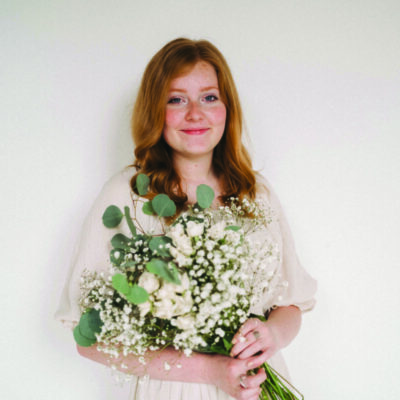
The Riverbend Youth Company presents The Drowsy Chaperone at the Amato Center for the Performing Arts (56 Mont Vernon St., Milford) from Friday, Nov. 4, through Sunday, Nov. 6. Showtimes are at 7:30 p.m. on Friday, 2:30 p.m. and 7:30 p.m. on Saturday, and 2:30 p.m. on Sunday. Ticket sales are TBA. Visit svbgc.org/amato-center.
Describe the character you’re playing.
Janet Van de Graaff is a glamorous showgirl giving up the stage for marriage. She is incredibly dramatic and loves attention and praise. But Janet also has a soft, affectionate side and would do anything for love.
What attracted you to this show?
I’ve been participating in shows with the Riverbend Youth Company for about five years now, this being my final season as a senior in high school. I knew I would be in the fall musical, but when I saw the directing team and title, I knew I couldn’t pass up the opportunity. The Drowsy Chaperone is such a fun title because it combines elements of old Broadway, but possesses the entertaining qualities of a modern musical. And, of course, MaryEllen [Stevenson], Meg [King] and Henry [Kopczynskie] are such incredible directors to work with.
What have you been doing to prepare?
I’ve been doing a lot of stretching and endurance training. Before being cast as Janet, I didn’t know just how physically demanding the role would be. There is quite a bit of singing with high-energy dancing. Additionally, I’ve been researching 1920s fashion and performance to get a better sense of the show’s setting.
What is the most challenging thing about playing this character?
While I’m similar to Janet in a lot of ways, we’re also quite different. I hope to have just half the confidence and presence she does. I also feel challenged by Janet’s fast-paced and upbeat numbers, which include lots of tricks and intense acting.
What are you most looking forward to about being in this show?
I can’t wait to see it all come together. Undoubtedly, the costumes and lighting will be spectacular. The Drowsy Chaperone is such a layered show, so it takes time to come together. But, as with any production, once the pieces click, it’s like magic. The interactive set and fun direction — including roller skating, tap dancing, encores and a power outage — make this show so full of energy and joy.
Why do you think this is a show that audiences will enjoy now?
I can’t wait for audiences to share in the joy that is The Drowsy Chaperone. I love the “show within a show” trope and think our audiences will find it very entertaining. Ben Erdody, playing Man In Chair, is such a fantastic actor, and I think he is the piece of the puzzle that makes the story come alive. His skillful narration allows the audience to truly dive into the story with him. Altogether, this title builds such lovable characters that I’m ecstatic to share.
— Angie Sykeny
Hannah Shepherd, as The Chaperone

Describe the character you’re playing.
The Drowsy Chaperone is an over-the-top performer. The world is her stage. The Chaperone is rough around the edges and does what she thinks is best.
What attracted you to this show?
I’ve been performing with the Riverbend Youth Company for many years. I was looking forward to the fall season, but I wasn’t familiar with the title of the show and was interested in learning more about it. I listened to the soundtrack, and I loved the 1920s setting and feel. This past March, I was in a production of Chicago where I realized how much 1920s musicals have to offer. Old shows are replete with grand dance numbers and musical ballads. These numbers make for fun choreography and impressive vocal tracks.
What have you been doing to prepare?
The directing team has compared my character of the Chaperone to many other characters in shows and other musicals. For example, Karen in Will and Grace. I’ve watched many clips of Megan Mullally as Karen to observe her acting style. When practicing my track, I’ll sing it to myself in the mirror, trying out different stances and facial expressions. Then, at rehearsals, I’ll try what I’ve worked on to see what feels the most natural.
What is the most challenging thing about playing this character?
The most challenging part of playing The Chaperone is the fact that she pays no mind to the other characters on stage. In other words, their problems aren’t her problems. The Chaperone is also a very monotone character. Naturally, I have a bubbly personality and feel emotions deeply, so I’ve learned that I have to put Hannah aside for the shows in order to step into the character.
What are you most looking forward to about being in this show?
I’m looking forward to seeing what we’ve rehearsed all put together. One of my favorite parts of any show is seeing what we’ve worked on for months finally together on stage. [With] this one especially, I feel each actor individually has put an immense amount of effort into making these characters come to life.
Why do you think this is a show that audiences will enjoy now?
I think audiences will enjoy this show because of its clever comedic timing and fun choreography. Meg, our choreographer, has worked hard to create amazing dances that challenge us as actors and entertain the audience.
— Angie Sykeny
Sean Damboise and Zakariah Tber, as Rosencrantz and Guildenstern

Lend Me a Theatre presents Rosencrantz and Guildenstern Are Dead at the Hatbox Theatre (270 Loudon Road, Concord) from Friday, Nov. 4, through Sunday, Nov. 6; Friday, Nov. 11, through Sunday, Nov. 13; and Friday, Nov. 18, through Sunday, Nov. 20. Showtimes are at 7:30 p.m. on Friday and Saturday, and at 2 p.m. on Sunday. Tickets range from $16 to $22. Visit hatboxnh.com.
What is Rosencrantz and Guildenstern are Dead about?
Damboise: Rosencrantz and Guildenstern are two … kind of small characters in Hamlet. Basically their role is just to kind of spy on Hamlet for the king and queen. Halfway into the show they have to take him to England. The original letter to the English king says, ‘OK, here’s Hamlet, you get to take his head off.’ Unfortunately, Hamlet got the letter twisted around so that when they show up in England, it says, ‘We’re supposed to cut your heads off.’ And Rosencrantz and Guildenstern die. … It’s basically Hamlet from their perspective. And at the same time, they’re kind of floating around going, ‘Something doesn’t seem right here. … We’re being pushed around and asked to be doing weird things,’ and they’re basically just trying to puzzle their way through it.
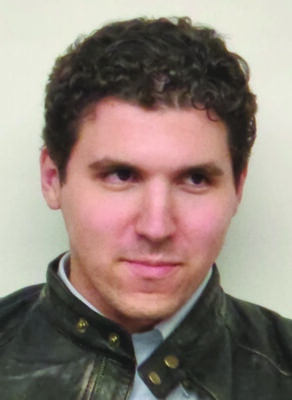
What attracted you to this show?
Tber: I like that both characters are constantly pondering their situation in the storyline and it’s almost weirdly metaphorical. They’re trying to talk about what’s the meaning of a person, what is existence.
Damboise: These guys are just sorting their way through trying to say, ‘OK, why were we chosen to die? Why can’t we actually change our destiny? Why is it that we have to die?’ But they’re still stuck.
What have you been doing to prepare?
Tber: I watched the movie. I took a look at certain scenes. This show is so heavy on lines, and this show is so heavy on [the question of] what is the true meaning of what they’re trying to say. Every rehearsal, I figure out why I’m saying certain things. Sometimes I don’t know why I’m saying certain things in this show because the language is different.
Damboise: And it does shift from modern speech to actually reciting lines from Hamlet. So now they’re jumping from, ‘Hey, what’s going on here,” to iambic pentameter, and then back again to the regular speech. The constant shifting is a little difficult.
What is the most challenging thing about playing these characters?
Tber: Unless I’m flowing, unless I start the scene and then I move from a motion to a motion seamlessly, I can’t start back up again. So, if I pause and then we give it a director’s note or if I pause and then we resituate something, I’m going to lose it and then I’m going to have to come back.
Damboise: The hardest part for me is [not that it’s] difficult to … flow through the emotions so much as actually trying to pull them out. Going from frustration to happiness, and there are a couple of scenes where he has to shift. It’s very difficult to try and make such a dramatic shift so quickly.
Why do you think this is a show that audiences will enjoy now?
Tber: There is a director’s note that says there’s only two times this show has failed. And it was when they decided to make it serious. Yes, it’s supposed to be a comedy.
Damboise: Yeah, it’s a comedy at heart. If you go deep, you’re not going to have a decent show because it’s way too much. These characters are not deep. They’re just incidentals in Hamlet’s. And now they’ve got a little bit of depth and background and they’re trying to figure themselves out. But if you try to go too deep, you’re just going to lose the point, which is following these two schlubs through Hamlet.
— Katelyn Sahagian
John Jenks Seymour, as Claudius
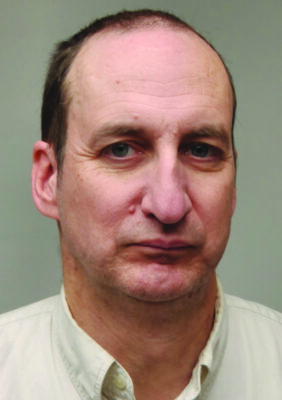
John Jenks Seymour, playing Claudius, will also perform in Lend Me a Theatre’s production of Rosencrantz and Guildenstern Are Dead.
Describe the character you’re playing.
The character I’m playing is Claudius. He’s the king. He’s not a really nice guy. Just kind of a person who’s out for his own interests.
What have you been doing to prepare?
My training was as a method actor. I try to find some feelings that I’ve had, that I can recall. That’s a lot of fun when doing a character who’s a really nasty, rotten guy.
What is the most challenging thing about playing this character?
I haven’t really been in the rehearsal process that long, so honestly it’s really just kind of fun.
Why do you think this is a show that audiences will enjoy now?
It’s a very, very funny play, and it’s a lot of just crazy humor, but it’s also very intelligent humor. You can take things at a couple levels. There’s some stuff that’s just silly and kind of slapstick, but there’s also some very deep humor.
— Katelyn Sahagian
TreVor Nantel, as Spike
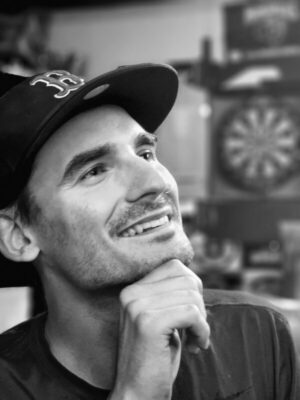
Bedford Off Broadway presents Vanya and Sonia and Masha and Spike at the Old Town Hall (3 Meetinghouse Road) from Friday, Nov. 4, through Sunday, Nov. 6; and from Friday, Nov. 11, through Sunday, Nov. 13. Showtimes are at 8 p.m. on Fridays and Saturdays, and at 2 p.m. on Sundays (doors open one hour before curtain). Tickets are $15 general admission, and $12 for children, students and seniors. Purchase them at the door or at brownpapertickets.com.
What is Vanya and Sonia and Masha and Spike about?
Vanya and Sonia and Masha and Spike is about three adopted siblings in their 50s, two of which — Vanya and Sonia — live a miserable life together, while their other sibling, Masha, is a very … renowned, famous actress. … Enter Spike, and he is a 29-year-old stud that Masha has picked up across the way, and she introduces Spike to already regretful siblings. The family goes through some hardships and they learn to live and love each other along the way.
What attracted you to this show?
This is my first ever play, but I consider myself to be a natural actor. … My dad, Rick Nantel, has performed [in] many shows here [throughout] the years. He read this script hoping to get Vanya, and suggested that I audition, as he thought I fit this role perfectly. I decided to give it a shot on the last night of auditions. … What attracted me to do the show was the kind of character Spike is. I feel like he is a very fun role.
What have you been doing to prepare?
I had some fun nights out with a friend and my girlfriend, and we would read lines and I’d constantly get scrutinized for getting them wrong, yet they were very supportive. … It came down to my girlfriend reading lines with me, and me sitting in my work van during the day and constantly reciting them in customers’ yards. … I was hoping they wouldn’t look out the window and see me talking to myself in a dramatic manner.
What is the most challenging thing about playing this character?
The most challenging part of playing Spike is the expectation of fulfilling who he really is in the playwright’s eyes, but I’m having fun and the cast has been amazing.
What are you most looking forward to about being in this show?
To be able to impress the audience, while making my friends, family and girlfriend proud.
Why do you think this is a show that audiences will enjoy now?
I think the audience will enjoy the show for the raw comedy, and the fact that they will be able to relate to a lot of the content.
— Matt Ingersoll
Greer Danzey, as Curly

The Kids Coop Theatre presents Oklahoma! at the Derry Opera House (29 W. Broadway). Showtimes are Friday, Nov. 18, at 7 p.m.; Saturday, Nov. 19, at 7 p.m., and a matinee on Sunday, Nov. 20, at 1 p.m. Tickets are $15. Visit kidscooptheatre.ludus.com.
What is Oklahoma! about?
Oklahoma! is a musical that was made [in the] late 1940s through 1950s by Rodgers and Hammerstein. It is about a cowboy during 1906 who is in love with [a] farm girl named Laurey Williams, and [he] wants to get her to marry him. [Laurey is] described as [being] the most beautiful girl in town, [and] she doesn’t know much about him. [The town is] very small, [and] everybody knows each other. With her being known by everybody, many people are after her in a romantic way. She has a love triangle with the lead, Curly McLain … and her farmhand named Jud Fry. Now, this farmer and the cowboy do not get along very well and it’s made very apparent throughout the whole show that they are romantic rivals. On the other side of the story you have a … different cowboy [named] Will Parker, [who’s] in a love triangle as well with this girl named Ado Annie … and a peddler [named] Ali Hakim. The story is a romantic comedy drama [about] these two love triangles happening in early America. It’s very interesting, [and] some parts are darker than others. Overall it’s quite an experience.
Describe the character you’re playing.
Curly is a curly-headed cowboy [with] a big ego. He’s very energetic, [and is] always trying to pitch in on a conversation. He likes to be engaged, [and is] very prideful. His biggest strength is also his biggest weakness [because] it’s what gets [him] in trouble, but it’s what people love about him. Not everybody always agrees with what he does [because] he’s very sporadic, but that energy is what makes him lovable, yet annoying.
What attracted you to this show?
I had seen Oklahoma! once before and I enjoyed the show. I saw the movie version [and] I thought the characters were really fun. The lead cowboy, Curly McLain, was very funny because he has a very big ego, and my friends always made fun of me for having a big ego, so I [decided I’d] go try for it. When I was researching, I started [to get] more into the show, I learned more about it, and I started to feel more connected to it.
What is the most challenging thing about playing this character?
He has a more serious tone to him and when it’s used it’s hard to separate that from his energetic side. You only see it a few times, but when you do it’s like you’re seeing a whole other person. It almost feels like you’re playing two different characters [and] it’s hard to understand that he’s the same guy that everybody loves, but he has this much darker, serious tone to him. Then there’s also the accent that goes with it. They have a silly Southern accent that makes it sound ridiculous so it’s hard to portray a serious tone when you’re talking like you just got scared.
What are you most looking forward to about being in this show?
I’d probably say I’m [most looking] forward to having stage interactions with a lot of my friends. [My friends and I] have been this little group who have been doing shows [together] for a while. [We] always audition for the same shows and always get characters that … interact with each other, and it’s always been really fun. Having that chemistry with each other and getting to put it on stage is always so much fun. We’ll talk to each other about who’s going to get this role, who’s going to get that role, and then if our predictions come out right everything just works out because in our rehearsal process we’ll just feel comfortable with each other and we know that in the end our stage production will feel very true to all of us.
Why do you think this is a show that audiences will enjoy now?
It’s funny [because] it’s very different from today. It seems like a lifetime ago which, really, it was. It takes place over a century ago, but the story itself has been adapted [into] so many other ways that it seems very relatable. Oklahoma! is very similar to the plot of West Side Story, which is another very popular musical. It’s similar to Grease, which is another great show. It has that classic spin to it that a lot of audience members would feel connected to and just be able to catch on [to] very easily.
— Mya Blanchard
Jim Gocha, as Hercule Poirot
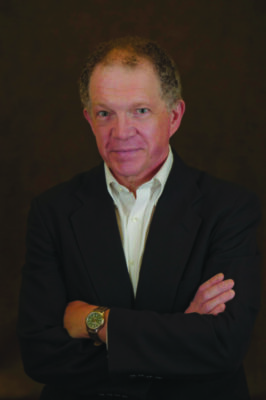
The Community Players of Concord present Agatha Christie’s Murder on the Orient Express at the Audi Concord (2 Prince St.). Showtimes are Friday, Nov. 18, and Saturday, Nov. 19, at 7:30 p.m., and Sunday, Nov. 20, at 2 p.m. Tickets are $20 for adults and $18 for kids and seniors. Visit communityplayersofconcord.org
What is Murder on the Orient Express about?
It’s a murder mystery. … It’s a story about a murder that takes place on a train. One character, a man named Sam Ratchett, is stabbed in the middle of the night multiple times … and then it becomes a matter of who did it.
Describe the character you’re playing.
I am playing Hercule Poirot, the main character [and] the very famous detective. [The investigation] turns to me, and so I’ve got to try to figure out what the heck happened.
What attracted you to this show?
Oh my gosh — who would not want to perform as Hercule Poirot? I mean, he’s one of the most famous detectives in all of literature. I couldn’t pass that up. … He’s such a great character, so iconic, and it’s just a matter of putting your own little twist on playing him. So I jumped at the chance, and I was actually surprised that I got it. … I went to school for theater for a while, but … eventually I switched to teaching English. That’s my main job now, but I’ve been doing theater again for probably a good 10 to 12 years now.
What have you been doing to prepare?
I did some background [research] on Poirot, not only from the original text written by Agatha Christie, but also looking at other versions of the character. There’s a famous film with Albert Finney playing him and, more recently, Kenneth Branagh, and also David Suchet on television. … So I looked at all the different versions that they did and how they put their own little twist on a character that is so iconic. … I also read some other information about him from the other Agatha Christie books, just to get an idea of who he is, and how he functions and how he is, not only physically but also just his background. He’s actually from Belgium, not France. … A lot of people make that mistake because he speaks French. But he’s from Belgium, and that actually becomes a joke throughout the show.
What is the most challenging thing about playing this character?
The most challenging thing for me is getting everything right about him. … For example, he has a limp and he walks with a cane. So it’s making use of that physical attribute, along with making sure that I get the accent right. … I’m a stickler for accents, and if you’re going to do an accent, you’d better do it right. … I’ve actually been working on that quite a bit, just looking up videos on how people speak with a French accent and, in particular, how Poirot would speak with a French accent, since he is Belgian.
What are you most looking forward to about being in this show?
As with any show, I look forward to the group that we work with. We’ve got such a really fantastic group of actors, and [I love] the camaraderie that takes place when you’re putting a show together that is such an ensemble piece. … Yes, Poirot is … supposed to be the main [character], but it doesn’t matter what I do if I don’t have these other people to rely on. … So that’s the part I look forward to the most, is interacting with the other folks on the stage.
Why do you think this is a show that audiences will enjoy now?
I think this show in particular is one that people would enjoy anytime, partly because it is such a well-known show. … I mean, Hercule Poirot and the story itself … are so well-known that it’s almost like visiting an old friend. … I think people will have a good time seeing that, remembering and comparing our show to somebody else’s but also [seeing] the twist that we’re going to add. It’s written by Ken Ludwig, and he added a few twists here and there. … So people [will] enjoy the little changes that he has made to the story.
— Matt Ingersoll
Featured photo: The cast of Murder on the Orient Express, to be performed by the Community Players of Concord. Photo staged by Nora McBurnett.

